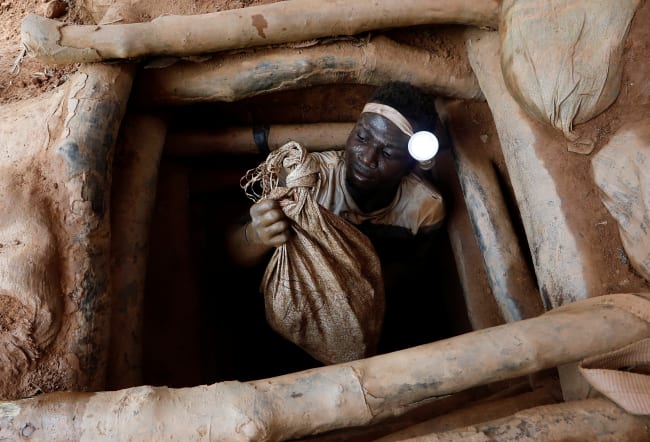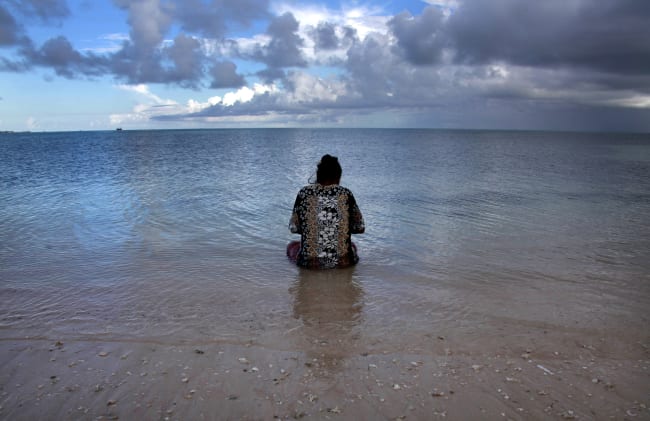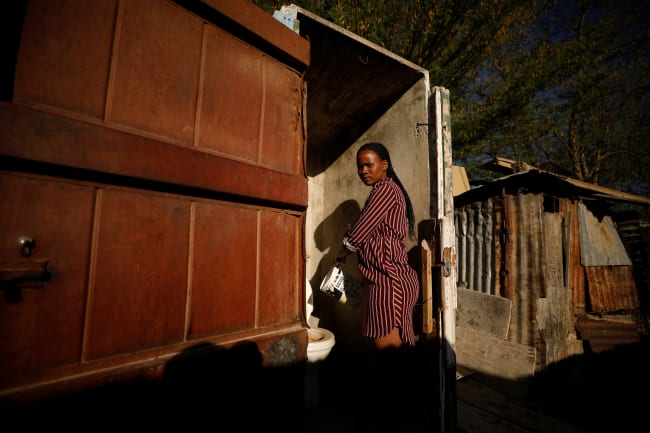The fifth and final season of the recently wrapped Showtime series The Affair braves a cold look at a warming planet, depicting a desolate New York decades in the future where forces of climate change threaten middle-class families with food scarcity and threaten to wreck the Long Island town of Montauk.
Normally, there's something downright Shakespearean about how most TV series end. As the much-maligned final episode of HBO's Game of Thrones earlier this year illustrated, beloved TV shows often become victims of their own success—self-aware, but not in a good way. Their final seasons drop in a predictable pattern somehow channeling one of the Bard's tragedies: they trip as they traipse over the finish line, end in a whimper, and fail to accomplish anything more than to prove that regrettable truism that all good TV ends badly.
Sure there are notable exceptions to this rotten rule—the final episode of CBS' M*A*S*H in 1983 comes to mind, and thirty years later the excellent 2013 finale of AMC's Breaking Bad. But most series seem to fall into the same pitfalls. They impose a tyranny of drawn-out, weepy goodbyes between characters (Game of Thrones). They lard themselves with long, preachy passages revising the show's central themes (HBO's The Wire). They weigh down their narratives with an exhausting number of unnecessary cameos (NBC's ER). They indulge reference after self-serving reference to past episodes (NBC's Seinfeld). Or they end too abruptly, with no attempt to tie up rather large loose ends (ABC's Lost and HBO's The Sopranos).
How refreshing, then, to add to the list of notable exceptions the suspenseful final season and episode of The Affair, which aired on November 3, 2019.

From its premiere in 2014, the show explored wreckage of a more human sort, capturing in its series name a reference to the precipitating extramarital fling that implodes the relationship between New York novelist Noah Solloway (Dominick West, a co-star of HBO's The Wire) and his wife Helen Solloway (Maura Tierny, veteran of NBC's ER). Avant-garde from the outset, the show opens with a haunting theme song by Fiona Apple and structures itself in a way that evokes Akira Kurosawa's Rashomon (1950). Each episode is split in half and tells the same story twice, from the alternative perspective of two different characters. Such a strong narrative device might otherwise seem unwieldy, but somehow the show always manages to make it work.
In its final season, the show departs slightly from this formula by also including a bleak vignette at the end of each episode that flashes forward to a dark future where the grown daughter of two of the show's main characters struggles with personal tragedies as well as professional ones. Played by Academy Award winner Anna Paquin (X-Men, The Piano), the character is a coastal engineer. She is dealing with the long-lost memory of her parents' bad relationships, which threatens to wreck her own marriage. At the same time she is collecting data and working hard to stave off rising sea levels and prevent the looming wreckage of the eastern Long Island community of Montauk, where most of the show is set.
Montauk is all but abandoned… Property values are destroyed. Houses and businesses are empty.
Perhaps the most powerful theme explored in the entire series, this fearless look at the legacy of climate change in mid-century New York doubles down on the show's darkness. Montauk is all but abandoned (though somehow still reachable on a high-speed train). Property values are destroyed. Houses and businesses are empty. A seminal moment comes about halfway through the final season when Paquin's character collects enough data and realizes her efforts are doomed to failure—Montauk is destined to drown, and there's nothing she can do about it.
Drowning is a strong theme throughout the series and operates as a metaphor for psychological trauma. In earlier seasons characters drown, and their loved ones are left wrecked by the loss. The whole point of introducing Paquin's character in the final season seems to be to explore the theme of how psychological trauma is passed down through the generations—inherited, "epigenetically," not genetically. But in exploring that theme, the show tells the audience that not just trauma but resilience, survivorship, and hope can be inherited epigenetically.
The final episode culminates with a long shot of an old man, decades in the future, dancing joyously atop the cliffs on the Montauk coastline. The camera slowly pulls back, revealing a large swath of beach, which we know from earlier in the season is eroding and doomed to drown under the rising sea. It's a goodbye to the show, but is it also a goodbye to the coast? It doesn't seem that way.
The Affair, which is probably the most unlikely story ever to have a happy ending, nevertheless finishes exactly that way, on resoundingly positive high notes. Did the writers intend this ending to imply the same hope and resilience may exist for mitigating future climate impacts? Perhaps they did.












